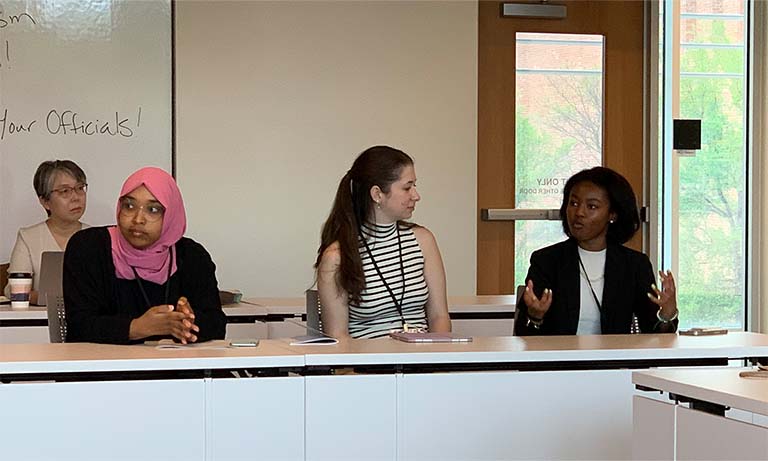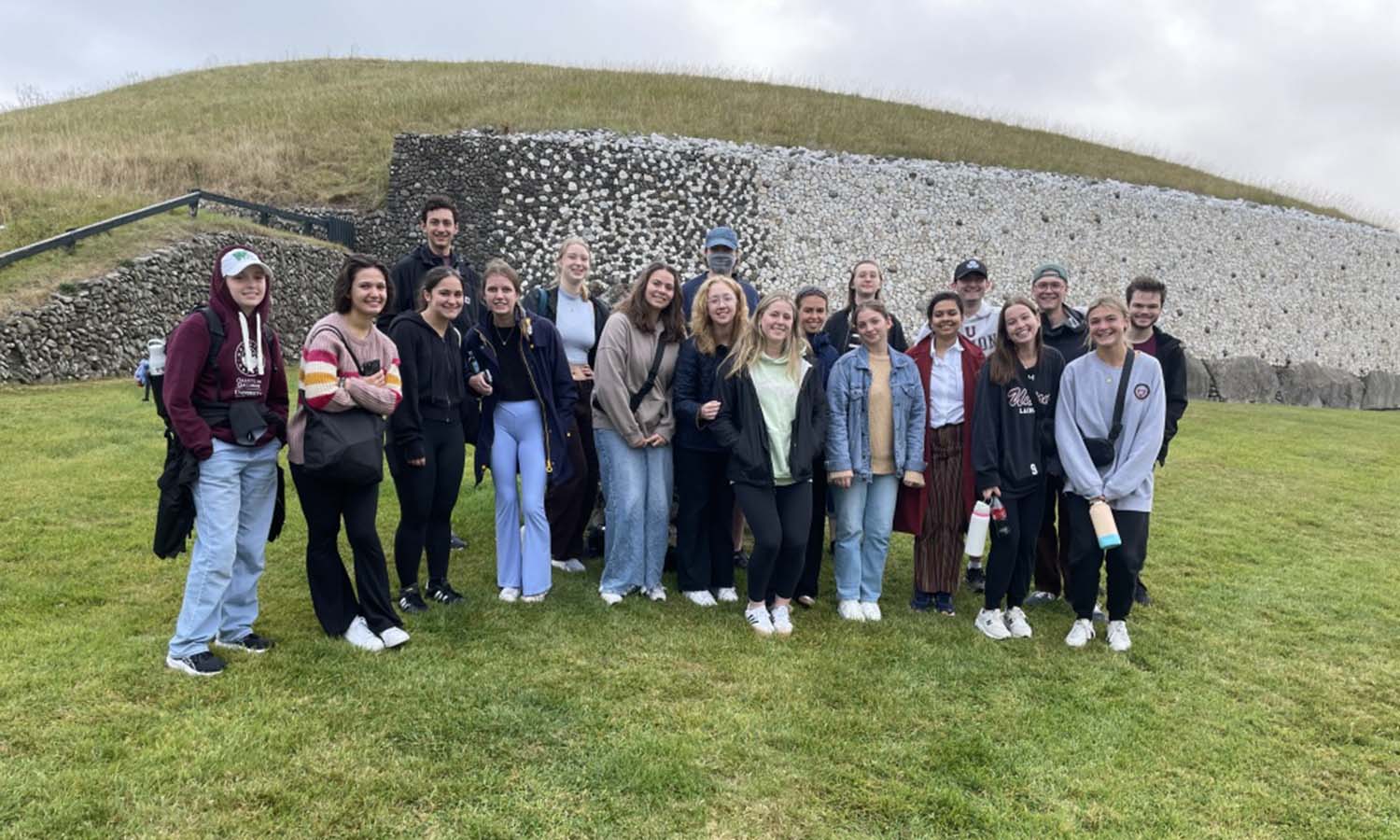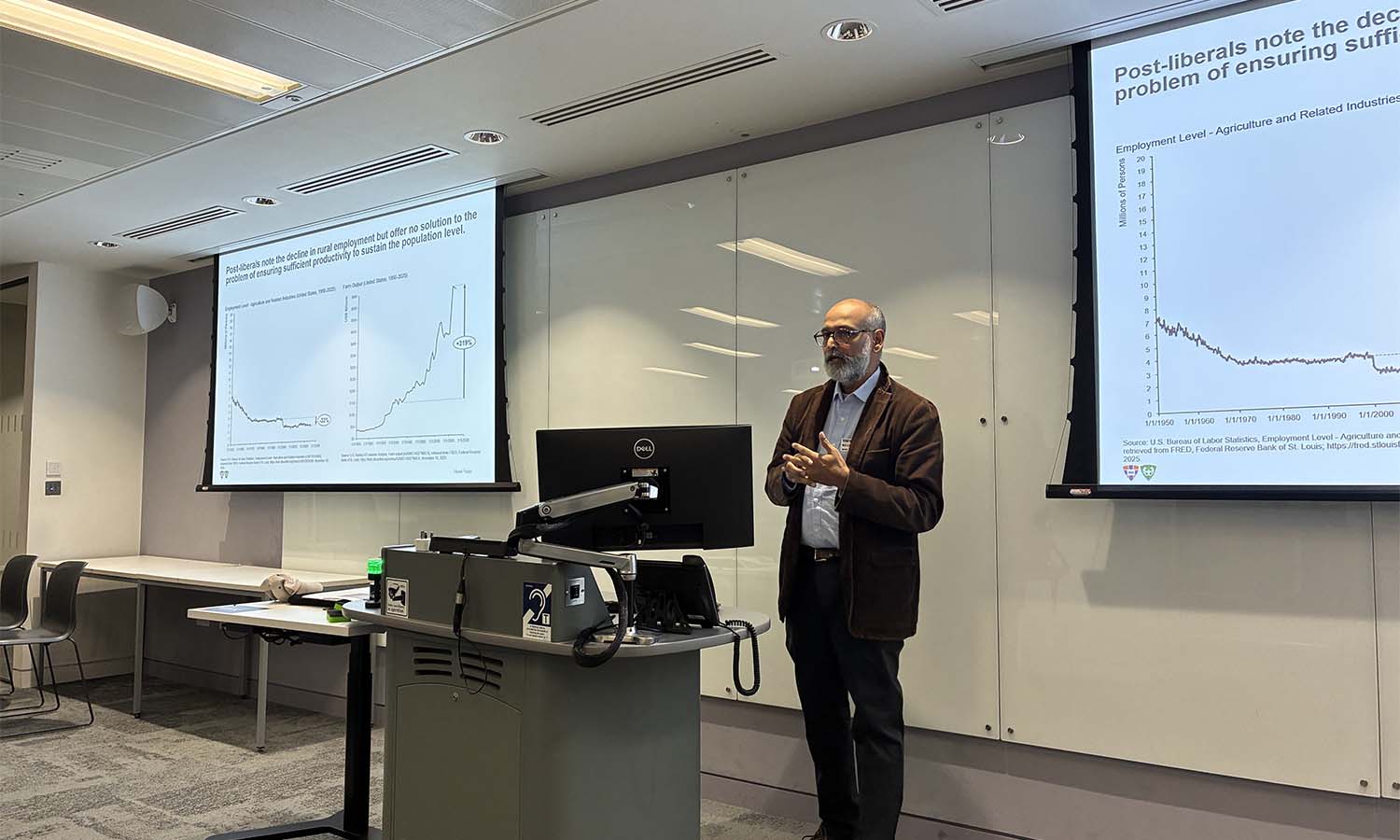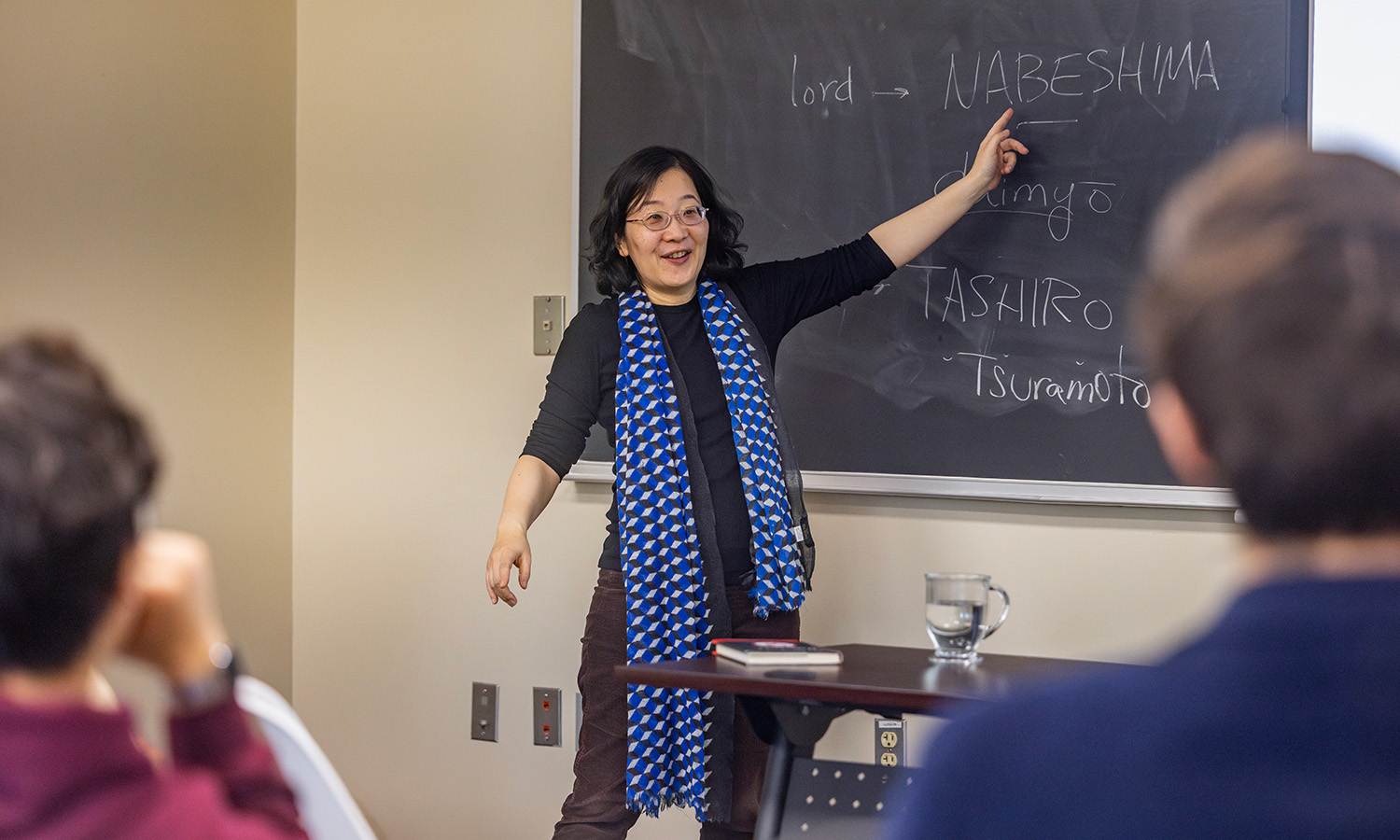
HWS News
12 June 2025 Rethinking China in Africa: HWS Students Challenge Media Narratives
Students explore Chinese-Zambian relations through innovative research, from global trade to social media.
“Saturday Night Live” sketches and Trevor Noah monologues are just two ways U.S. media perpetuate tropes about Chinese colonialism, says Chloé Woods ’27. Her research, alongside Najma Ahmed ’26, Estelle Bignet ’26 and Michelle Mangione ’27, pushes back against dominant stereotypes of China, particularly in its activities in Africa.
Working with the Asian Studies Department, the students analyzed case studies to assess the accuracy of negative narratives surrounding Chinese investment in Zambia. Their research culminated in a presentation at the ASIANetwork Annual Conference at Trinity University in San Antonio, Texas, themed “Asian Interconnections: Toward New Interdisciplinary Approaches.”

While the conference typically features faculty research, the HWS students stood out as undergraduates presenting their work to an audience of professors. Their central question: What does Chinese investment look like in Zambia?
To answer that, the students had to access Zambian and Chinese perspectives—no easy feat from Geneva, N.Y.
“We don’t want to say ‘China’ or ‘Zambia’ like they’re monoliths—or worse, treat Africa as a single entity,” says Associate Professor of Asian Studies and Anthropology Christopher Annear. “Africa is often collapsed into one thing. We had to get past that.”
Ideally, the students would conduct fieldwork in Zambia and speak local languages, but instead they blended scholarly sources with podcasts, YouTube and TikTok to gather firsthand accounts.
Initially skeptical of social media as a research tool, Woods says she was surprised by its value: “I learned more in a 10-minute video of an interracial couple in Zambia than in 50 pages of academic reading.”
Each student brought a distinct focus:
- Woods explored Chinese land acquisition;
- Ahmed examined the “debt trap” narrative;
- Mangione analyzed work culture and crop exchange;
- Bignet studied the international Mukula timber trade.
Their findings revealed how contrasting cultural approaches can foster mutual benefit. Bignet noted that the Western concept of land ownership doesn’t always align with Zambian norms, creating challenges and misunderstandings. Annear’s extensive experience in Zambia helped students contextualize these complexities.
Mangione found that Chinese migrants have introduced new crops like dragon fruit and rice to Zambia, reshaping agriculture. Though work standards may clash, long-term outcomes may be positive.
Ahmed examined everyday communication, noting that Zambians tend to be more direct—a trait that can feel impolite in Chinese contexts. “These small moments tell us more about global relationships than official policy ever could,” she says.
To deepen this understanding, Annear developed the course “China in Africa,” where students adopt character roles to explore multiple viewpoints. “If you just disagreed with your character, you succeeded in creating the opportunity to recognize the complexity of the issue,” he tells them.
At the conference, Annear joined three HWS colleagues in presenting on the importance of interdisciplinary dialogue. Since 1993, ASIANetwork has fostered collaboration between North American and Asian scholars.
As Annear continues mentoring summer researchers, he encourages students to engage critically with the complex narratives shaping China-Africa relations.
Top: Najma Ahmed '26 and Michelle Mangione '27 listen to Chloé Woods '27 at the ASIANetwork Annual Conference at Trinity University in San Antonio, Texas.



